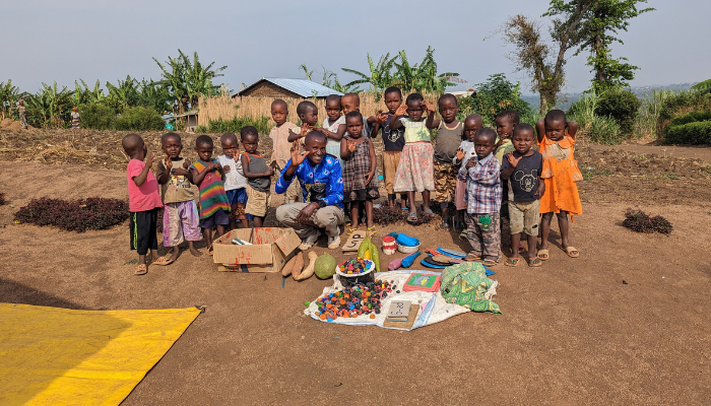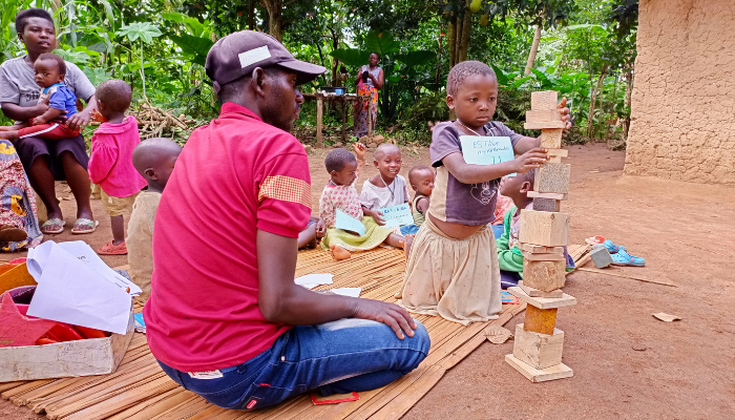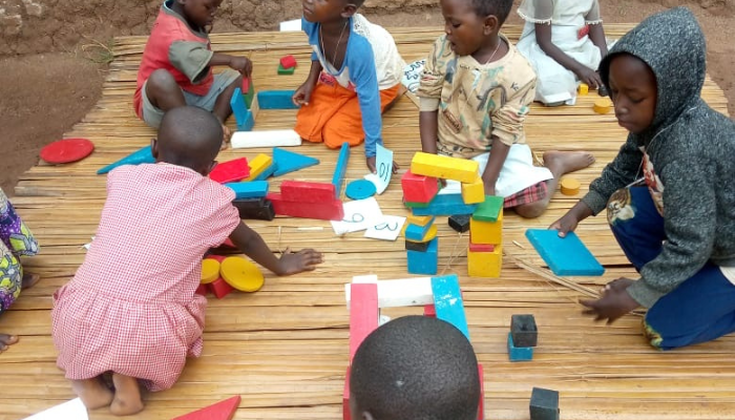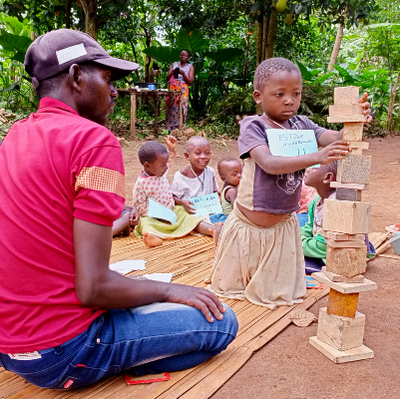 Guest blog from Sarah Ndlovu, our International Education Specialist about how we’re breaking the mould, and using play to create an effective early years assessment tool in Uganda. In Kyaka II refugee settlement, Uganda, Children on the Edge have been trying to find a better way to assess whether our early years programme is having a positive impact on the children we work with. Are we effectively preparing them for the future? Frustrated by existing international early years assessment tools, we have been working with our friends at Learn to Play Botswana and the University of Chichester (UK), to develop a play-based observational assessment - to use in our early years education programme in Kyaka II refugee settlement, Uganda - which is delivered in exactly the way that children learn best - through play. HOW IT STARTEDWe believe that the main aim of early years education is to instill a lifelong love of learning. We aim to develop curiosity and creative thinking, to help children become resilient, determined, confident and able to solve complex problems. We wanted to create an assessment tool to find a way to effectively measure the values and skills we believe are most important for a child’s development, the ones that will best prepare them for life and help them to thrive. We also wanted to move away from traditional early years assessments, which focus on memorised information and academic skills, rather than how children are holistically and uniquely developing. These style of tests often remove children from familiar settings, away from their friends, to be assessed by unfamiliar adults. So it’s no surprise that children are unable to be at ease and show their unique qualities and skills. THE SOLUTION: PLAY BASED ASSESSMENTWorking with Learn to Play Botswana and the University of Chichester (West Sussex, UK), we have developed an assessment tool to help organisations identify gaps in their Early Childhood Education (ECE) provision and ultimately improve delivery. Using a play-based approach, the tool enables organisations to collate data on child development and assess how effective their programmes are. HOW DOES IT WORK?1. Play Activities A set of eight pre-designed activities take place within the children’s familiar setting, with their friends and usual teacher, plus an assessor who, wherever possible, is already be known to the children. The fun, play-based activities give children the freedom to explore different concepts in their own way, demonstrating where they are in their own unique learning journey. Whilst observing groups of children together, assessors are able to identify a wide range of outcomes being displayed at the same time. 2. Observations Educators and children will also be observed in their usual learning environment - whether that’s their classroom or outdoor learning area - following their normal daily routine. Often called ‘the third teacher’, the observation will observe the play environment, looking at elements like safety, accessibility, the quality of learning resources, and the availability of materials and equipment. The assessment tool also closely considers the relationships between the children; between the teacher and children, how engaged families and parents are in the child’s learning, and how well the teacher communicates with parents. It looks at teaching and learning styles used by teachers, how well they facilitate play and how inclusive they are. The data and analysis from these two areas enable organisations, like us, who deliver Early Years Education, to reflect upon their work , identify strengths and gaps, and create a road map to improvement, ensuring that young children are able to access the best possible learning and development opportunities. PILOTING THE TOOL AND OUR NEXT STEPSThe assessment tool was piloted first in Botswana, then with our learners in Kyaka II, Uganda in 2023, where I was thrilled to see animated and engaged facilitators and assessors and, more importantly, over 60 happy children full of confidence, laughing, having fun, and celebrating each other's achievements. In addition, the data we collected and analysed led to some significant programmatic changes. We realised that teaching and learning kept slipping back into a rote learning style and whilst children were memorising information, this was not translating to a full understanding of the topic. This has led to us developing a new daily routine which allows for more free play and social interactions that help to better embed learning and develop creative thinking skills, alongside developing social and emotional skills. We are now working with the University of Chichester to evaluate the effectiveness of the tool alongside an international panel of ECE experts. We are excited to share our work with other selected organisations and enable them to pilot the tool on their own programmes. Our hope is that it will be available for international use soon and excited to see what the future holds. We believe wholeheartedly that we have developed a unique tool which proves how programme assessments can carry both value and joy. If you'd like to find out more or how you might be able to use the tool, please contact me at: [email protected].
 Our work with Congolese refugee children is generously supported by funds raised by players of People's Postcode Lottery, and awarded by Postcode Education Trust, who are committed to improving the quality of education through innovation. Support usComments are closed.
|
RECEIVE OUR EMAILSBlog Categories
All
Archives
July 2024
|
|
JOIN US ON SOCIAL MEDIA
|
Annual Report | Contact Us | Jobs | Media Centre | Resources | Shop
Accessibility & Policies: Accessibility | Equity, Diversity & Inclusion Policy | Complaints| Privacy Policy | Safeguarding
Accessibility & Policies: Accessibility | Equity, Diversity & Inclusion Policy | Complaints| Privacy Policy | Safeguarding
Children on the Edge, 5 The Victoria, 25 St Pancras, Chichester, West Sussex, PO19 7LT, UK | 01243 538530 | [email protected]






 Give monthly
Give monthly Fundraise for us
Fundraise for us RSS Feed
RSS Feed
